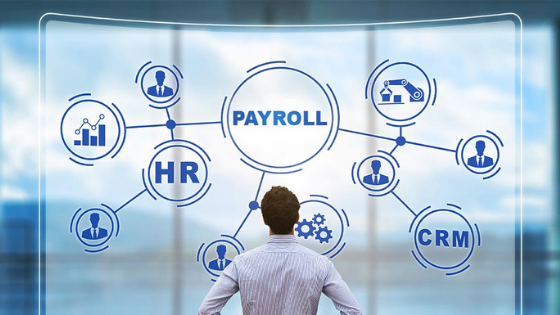NO ONE starts a business to be bogged down by paperwork and administrative encumbrances. Sadly, it’s essential!
If yours is a small business with only a handful of employees, these tasks may not take up much of your time. However, in a growing enterprise, paperwork compounds to occupy a sizeable portion of time and resources, taking the focus off the bigger picture.
That’s where PEOs and payroll companies come into the picture! But, what do they do, how are they different, and which one is more beneficial?
To find answers to these questions and more, read along!
PEO vs PSP: Meaning
A PEO or Professional Employer Organization specializes in services related to Human Resources for enterprises of varying scales, especially small and medium-sized.
In the US, roughly 175,000 organizations resort to PEOs.
They partner with businesses to take over their gamut of HR duties such as hiring staffs, managing and training a team, seeing to payrolls, compensation & claims, taxes, and employee benefits, among others.
A PSP or payroll service provider is exclusively concerned with payroll solutions. They disburse the salaries as per the schedule and take care of related taxes.
Although some PSPs might offer additional services, the liability of human resources rests with the concerned business.
Essentially, a PEO is a partner, whereas a payroll company is a service provider.
Thus, when outsourcing human resources for your small and mid-sized business, consider whether you need a service provider or a partner.
PEO vs PSP: Who is the Employer of Record?
An employer of record assumes all the responsibilities of human resources, from hiring employees to worker’s compensation and paying federal taxes. It is to be held liable in case of discrepancies in the same.
When you use a Professional Employer Organization, it becomes the employer of record. Thus, a PEO bears any fine or expense arising out of the HR department. PEOs and payroll form a significant connection for any small and mid-sized company since it divvies up the liability.
Fact: More than 33% of small companies managing HR duties on their own pay fines every year to the IRS.
In case you use a payroll company, you are responsible for those liabilities since you continue to be the employer of record while the PSP merely sees to salary and tax payments.
PEO vs PSP: Cost Savings
Entering into a partnership with PEO might cost more than using a PSP, but the investment pays for itself on many fronts.
In fact, according to a NAPEO report, 70% of companies have reported an uptick in their revenues ever since they became a PEO client. Near about 66% of enterprises registered significant profitability by signing up with a Professional Employer Organization.
Savings on employee health benefits is one of the more essential points to that end. PEOs have access to discounted rates of health coverage only available to large corporations.
Premised on the state in which you are based, savings in health insurance policies can be as much as $2400 per employee annually with a PEO. Similarly, for 401(k), your business can save significantly on a per-employee fee since you’ll be benefitting from a PEO’s large investment capacity.
Your business can also gain a competitive edge with premium worker’s compensation programs at reasonable rates, exclusively offered to large organizations.
With a PSP, these benefits are not available. You remain liable for securing a health insurance policy and worker’s comp program. Although, PSPs might extend relevant options from their network. Even in the case of 401(k), you need to pay charges per your employee strength and cannot leverage a larger company’s investment capacity for reduced fees.
The aforesaid points only cover the direct distinctions between using a PEO and a payroll company. A PEO extends several other advantages over a payroll company.
Most notably and recently, PEO clients were reported to be 119% more likely to receive Paycheck Protection Program Loans, a financial aid extended by the US government in response to the economic upheaval the Covid-19 pandemic caused. PEOs facilitated applications for PPP loans even before banks started to accept those.
Nonetheless, no single solution can fit all.
Evaluate your business’s requirements and scale to judiciously select a PEO or payroll company. Schedule a free consultation with us today to gain further clarity into which one would be a better fit for your business.
Request your quote for payroll or PEO services today
[/et_pb_text][et_pb_contact_form _builder_version=”4.9.3″ _module_preset=”default” custom_margin=”-3px|||||”][et_pb_contact_field field_id=”Name” field_title=”Name” _builder_version=”3.16″ button_text_size__hover_enabled=”off” button_one_text_size__hover_enabled=”off” button_two_text_size__hover_enabled=”off” button_text_color__hover_enabled=”off” button_one_text_color__hover_enabled=”off” button_two_text_color__hover_enabled=”off” button_border_width__hover_enabled=”off” button_one_border_width__hover_enabled=”off” button_two_border_width__hover_enabled=”off” button_border_color__hover_enabled=”off” button_one_border_color__hover_enabled=”off” button_two_border_color__hover_enabled=”off” button_border_radius__hover_enabled=”off” button_one_border_radius__hover_enabled=”off” button_two_border_radius__hover_enabled=”off” button_letter_spacing__hover_enabled=”off” button_one_letter_spacing__hover_enabled=”off” button_two_letter_spacing__hover_enabled=”off” button_bg_color__hover_enabled=”off” button_one_bg_color__hover_enabled=”off” button_two_bg_color__hover_enabled=”off”][/et_pb_contact_field][et_pb_contact_field field_id=”Email” field_title=”Email Address” field_type=”email” _builder_version=”3.16″ button_text_size__hover_enabled=”off” button_one_text_size__hover_enabled=”off” button_two_text_size__hover_enabled=”off” button_text_color__hover_enabled=”off” button_one_text_color__hover_enabled=”off” button_two_text_color__hover_enabled=”off” button_border_width__hover_enabled=”off” button_one_border_width__hover_enabled=”off” button_two_border_width__hover_enabled=”off” button_border_color__hover_enabled=”off” button_one_border_color__hover_enabled=”off” button_two_border_color__hover_enabled=”off” button_border_radius__hover_enabled=”off” button_one_border_radius__hover_enabled=”off” button_two_border_radius__hover_enabled=”off” button_letter_spacing__hover_enabled=”off” button_one_letter_spacing__hover_enabled=”off” button_two_letter_spacing__hover_enabled=”off” button_bg_color__hover_enabled=”off” button_one_bg_color__hover_enabled=”off” button_two_bg_color__hover_enabled=”off”][/et_pb_contact_field][et_pb_contact_field field_id=”Message” field_title=”Message” field_type=”text” fullwidth_field=”on” _builder_version=”3.16″ button_text_size__hover_enabled=”off” button_one_text_size__hover_enabled=”off” button_two_text_size__hover_enabled=”off” button_text_color__hover_enabled=”off” button_one_text_color__hover_enabled=”off” button_two_text_color__hover_enabled=”off” button_border_width__hover_enabled=”off” button_one_border_width__hover_enabled=”off” button_two_border_width__hover_enabled=”off” button_border_color__hover_enabled=”off” button_one_border_color__hover_enabled=”off” button_two_border_color__hover_enabled=”off” button_border_radius__hover_enabled=”off” button_one_border_radius__hover_enabled=”off” button_two_border_radius__hover_enabled=”off” button_letter_spacing__hover_enabled=”off” button_one_letter_spacing__hover_enabled=”off” button_two_letter_spacing__hover_enabled=”off” button_bg_color__hover_enabled=”off” button_one_bg_color__hover_enabled=”off” button_two_bg_color__hover_enabled=”off”][/et_pb_contact_field][/et_pb_contact_form][/et_pb_column][/et_pb_row][/et_pb_section]










